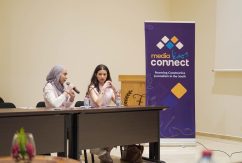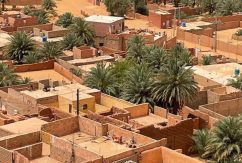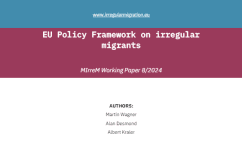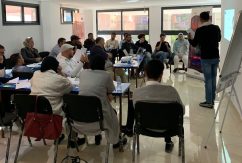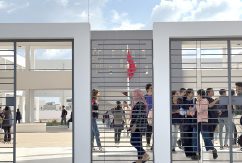In Lebanon, pride of place to the Anfeh salt marshes
“When I was little, my father used to take us swimming in the salt marshes. Of the 10,000 square metres of salt pans, 2,000 were reserved for bathing and we had a lot of fun there with our children’s games. The rest was for salt production, which was my family’s livelihood,” recalls Jessica Najjar, age 33, whose father had salt works in Anfeh, a coastal town in the Koura district of Northern Lebanon. She is one of the beneficiaries of the MedArtSal project, financed by the European Union and covering four Mediterranean countries – Tunisia, Spain, Italy and Lebanon.
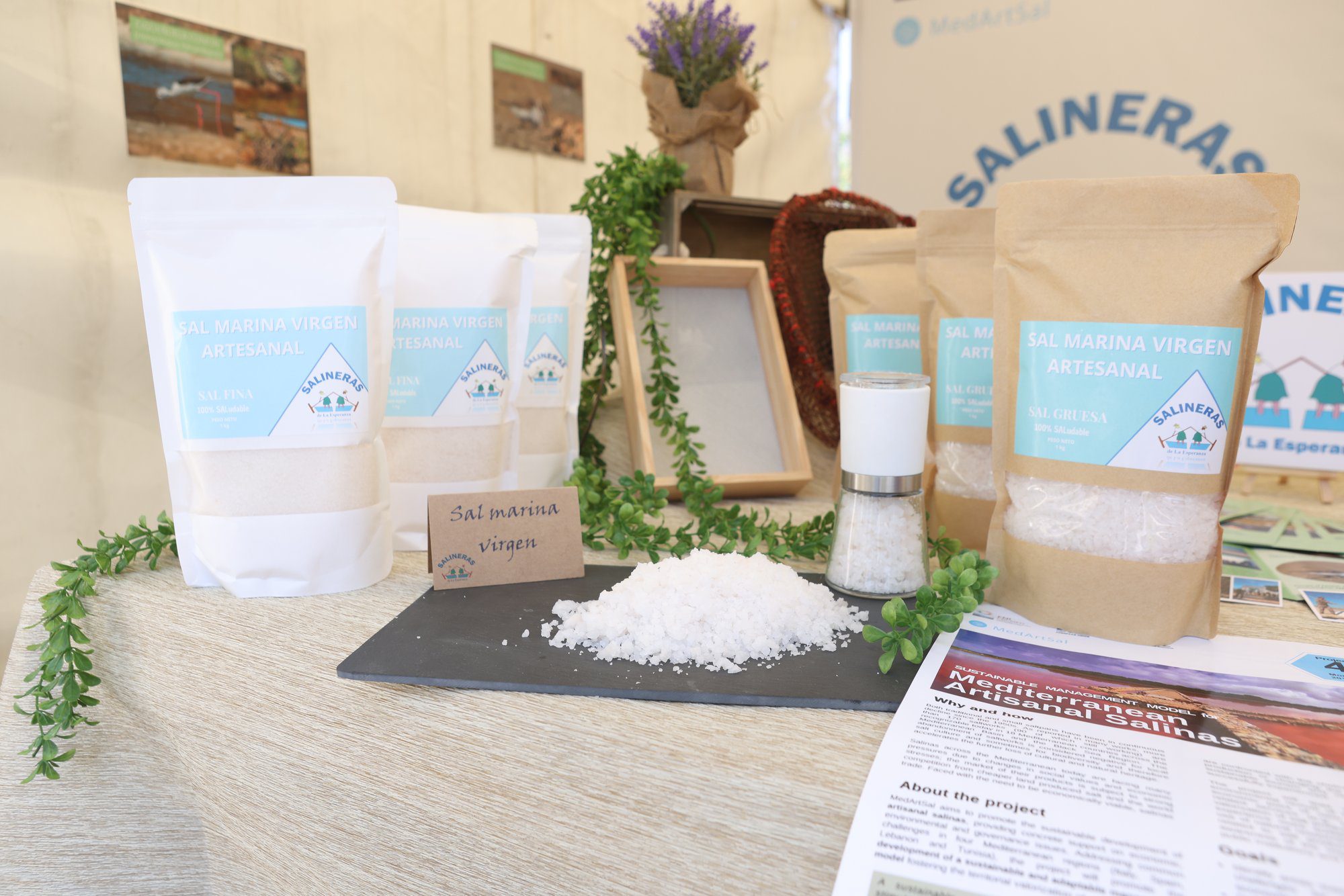

Together with her two sisters, Jessica Najjar, who holds degrees in journalism and philosophy, manages salt works that produce 150 metric tons of salt a year. “Thanks to MedArtSal, I’ve reactivated the family business, which is called ‘Blanc Sel’ (White Salt). I’ve designed new logos and packaging, I’ve put a rigorous business plan in place and I’ve started selling in several local producer markets. For me, the most rewarding part of this project is the networking, getting to know people who are in the same business as I am but from other countries,” she says.
A helping hand from the EU
For her, the MedArtSal project, financed by the European Union as part of the ENI CBC Med programme (ENI = European Neighbourhood Instrument and CBC = Cross-Border Cooperation) has played a crucial role in defining sustainable management models for small-scale salt works. In Lebanon, two NGOs have worked on its implementation, the ARD (Association for the Development of Rural Capabilities) and Fair Trade Lebanon. “Thanks to this project, we’ve established a strategic marketing plan, strategies for biodiversity, an e-commerce platform, programmes to strengthen capabilities and an international network,” says Samir Abdel Malak, chairman of NGO Fair Trade Lebanon.
The project was rounded off with an international Salt Fair, which provided an opportunity to present the results and impacts of the project and to put local and international salt producers in touch with one another, promoting innovation and cooperation. Held over several days, this international fair was organised in Lebanon with a seminar in Beirut and a visit to the site at Anfeh, a very ancient town on the Lebanese coast which is famous for its salt ponds used since the time of the Phoenicians.
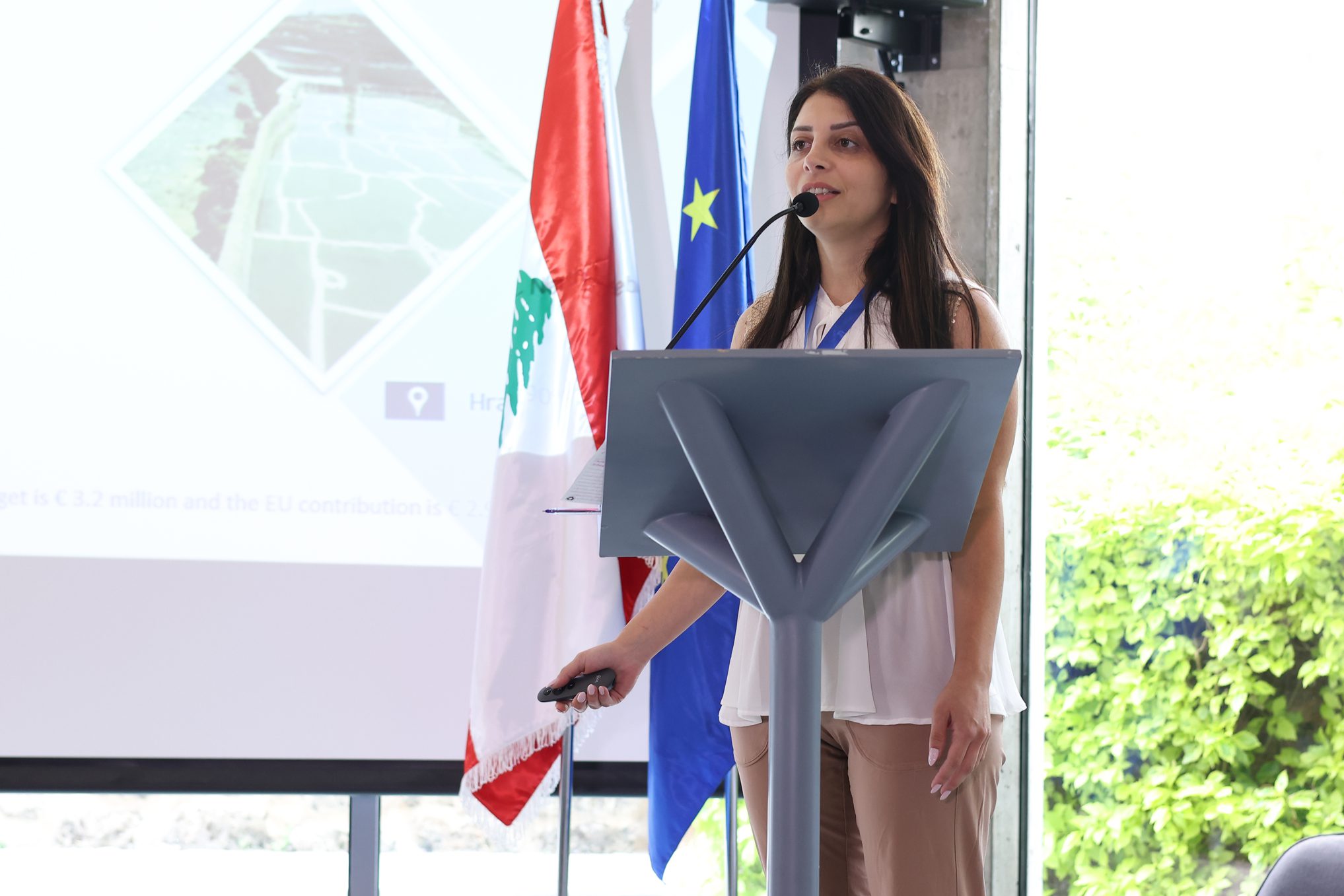

Fair Trade Lebanon seized the opportunity provided by the presence of all the participants in the project, who had come from several Mediterranean regions, to stress the dangers threatening the Lebanese coast. During the fair, the stress was placed on the importance of conserving public access to the coast of Lebanon, despite the fact that large portions of the coast have been illegally privatised by the numerous tourist projects carried out over the years. It was noted that the Lebanese coast is currently much affected by mass tourism, with bathing resorts that restrict access to the sea, leading to environmental degradation and cultural impoverishment all along the coast. The fair also offered foreign participants the chance to discover the town of Anfeh, which is at risk of being added to the UNESCO list of endangered heritage sites. It was explained that for centuries the extraction of salt had been one of the main socio-economic activities of the coastal communities of Anfeh, salt being considered as the precious “white gold” of the region, although this tradition is currently in decline.
The EU’s support in favour of biodiversity and Mediterranean heritage
Alessandra Viezzer, head of cooperation with the European Union Delegation, said “the EU is proud to have supported the work of the artisanal salt producers in Lebanon, because the salt marshes favour biodiversity and preserve the Mediterranean cultural heritage.” Indeed, the salt marshes are home to a wide and varied range of plant and animal species. By conserving these salt marshes we protect these species and their habitats, and this contributes to maintaining the ecological balance of the planet. The European Union thus reaffirms its commitment to protecting the environment, preserving natural resources and working towards climate neutrality. The salt works, which are generally managed by families, also have the potential to create local jobs and to offer business opportunities, particularly in rural and coastal regions where job opportunities are scarce. By supporting these salt works, we contribute to the creation of sustainable jobs and to the development of the local economy. The salt ponds also play a crucial role in preserving the Mediterranean cultural heritage by keeping alive the invaluable ancestral knowledge of traditional salt extraction techniques. The MedArtSal project has devised innovative solutions and a management model that can be adapted to artisanal salt works in four Mediterranean countries – Tunisia, Spain, Italy and Lebanon, which all face similar challenges.
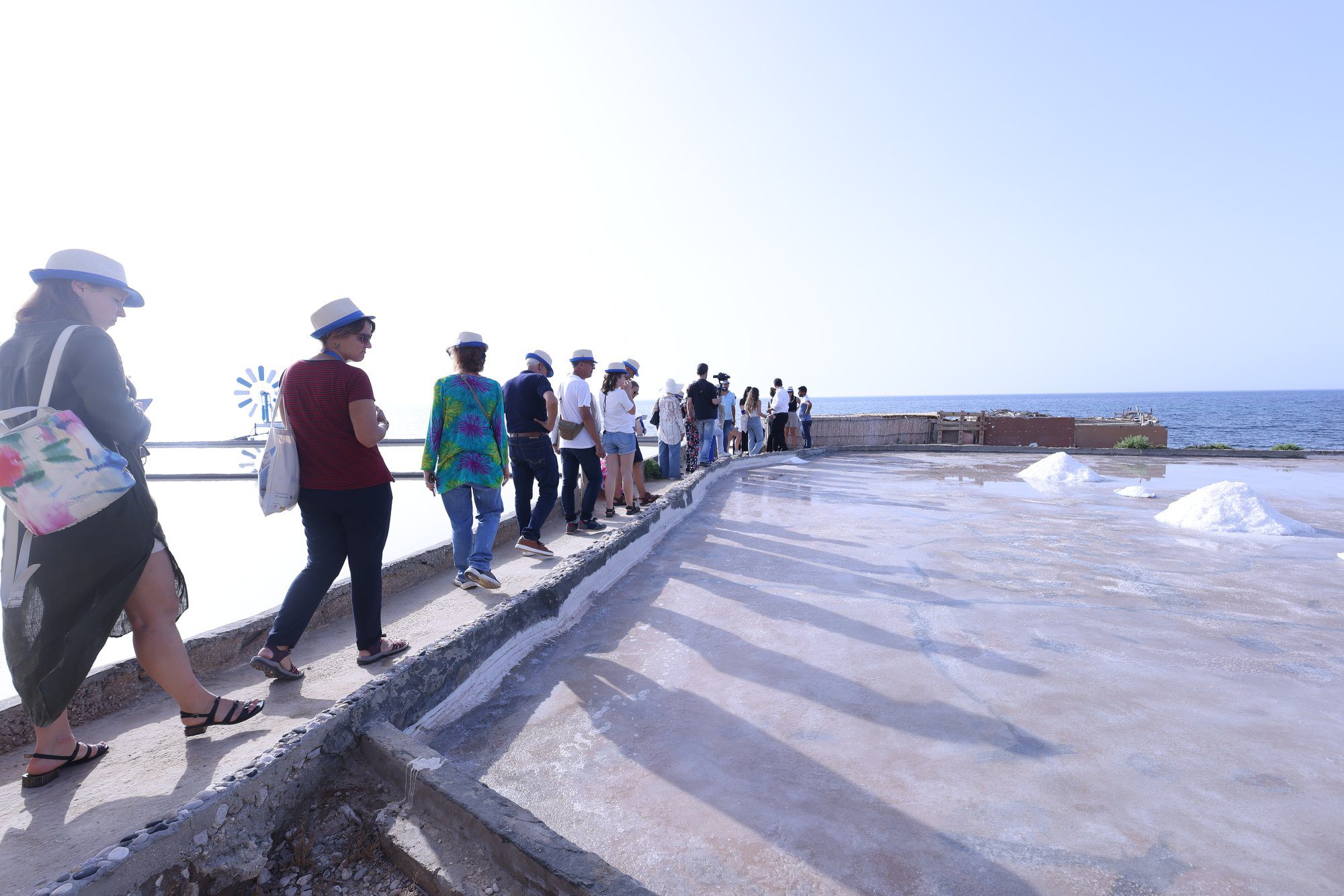

MedArtSal – Sustainable Development of Mediterranean Artisanal Salinas – is financed by the European Union through the ENI CBC Med programme. MedArtSal is a three-year project aimed at promoting the sustainable development of small-scale salt works, by contributing specific support with regard to economic, environmental and governance issues linked to the production of salt. In addressing the challenges common to four Mediterranean countries (Italy, Spain, Lebanon and Tunisia), the project aims to promote the development of a sustainable and adaptable management model that values the presence of small-scale salt works. The project is managed by CUEIM (Italian acronym for University Consortium for Industrial and Managerial Economy), Italy, and is supported by partnerships such as ADR (see above), Lebanon, Fair Trade Lebanon, the Centre for Mediterranean Cooperation of the IUCN (International Union for Conservation of Nature), the MEDSEA Foundation, Italy, Saida Society, Tunisia, the University of Cadiz, Spain and the Tunisian-Italian Chamber of Commerce and Industry (CTICI), Tunisia.
Websites: http://www.enicbcmed.eu/home https://medartsal.com
